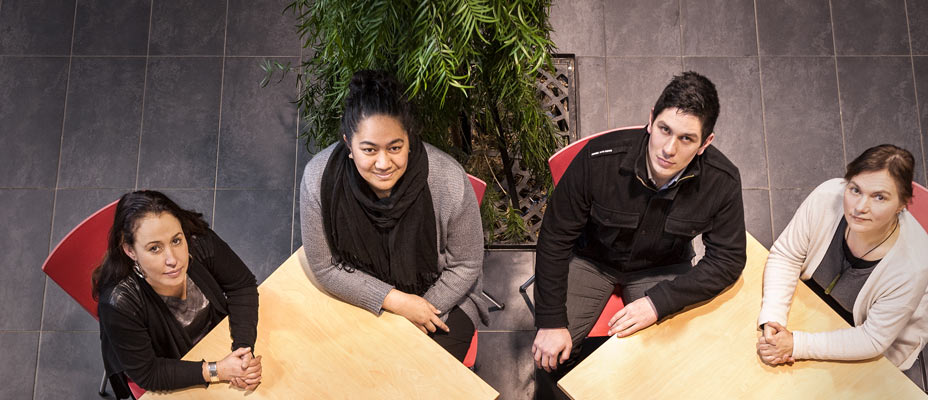
Opinion
From inspiration to graduation: Otago's Māori health workforce development programmes have led to a dramatic increase in the numbers of Māori students studying in the health professions – and their success.
In 1904 Te Rangi Hiroa became the University of Otago's first Māori graduate and its first Māori medical graduate. Not only did Te Rangi Hiroa take up leadership roles in Māori health, he was globally recognised as an anthropologist, making significant contribution in Aotearoa and the broader Pacific. Alongside other Māori public health leaders, he played a pivotal role in supporting the health and well-being of Māori communities in the early 20th century.
Māori health workforce development is well recognised as a key strategy for improving Māori health. Alongside expectations of cultural competence among all health practitioners, Māori patients and communities benefit from having Māori practitioners who relate to Māori world views, have passion and commitment to Māori health and who are connected within a diversity of Māori whānau, hapū and iwi.
Since the graduation of Te Rangi Hiroa 110 years ago, Māori have continued to train in Otago's health professional programmes and Māori graduates have gone on to undertake leadership and practitioner roles in health and Māori health. Recent research reinforces this view, with the vast majority of respondents who were established in general practice or specialty practice contributing significantly to Māori health in a range of roles and localities.
Despite positive increases in the numbers of Māori in health professional roles, New Zealand's health workforce data shows Māori remain grossly under-represented in the health professional workforce. Currently, Māori make up between two and four per cent of registered health professionals in medicine, dentistry, pharmacy and physiotherapy, and less than two per cent of practitioners in radiation therapy, dental technology and medical laboratory science.
In 2008 and 2009, in response to the under-representation of Māori within the health professions, the University of Otago's Division of Health Sciences and its Office of Māori Development formed a relationship with the Ministry of Health to explore Māori health workforce development. As a result, in 2010 a new culturally responsive foundation programme, Tū Kahika, was implemented and the Māori Health Workforce Development Unit (MHWDU) was established.
The MHWDU sits within the Division of Health Sciences and provides a strategic and operational hub for programme development, operations, evaluation and quality. The environment supporting this has been one of positive collaboration across the Tertiary Education Commission, Foundation Studies, residential colleges, Division of Sciences and the Māori Centre to name just a few. Thus, these initiatives have been supported and contributed to by many.
Since its establishment, the MHWDU has incrementally built on the programmes delivered, all aimed at meeting the objective of supporting an increased number of Māori health professional and health science graduates. The MHWDU comprises a small team of very passionate and skilled staff who are committed to supporting Māori educational excellence, addressing inequity and reducing educational disadvantage.
Aligned with recognised best practice in Māori education and tertiary transition, the MHWDU team embeds their activity within the context of a Māori world view, recognising the importance of tikanga, te reo and core Māori values within programme development and delivery. Striving for excellence is central to all aspects of the team's approach to supporting Māori student pathways and achievement.
The MHWDU now provides a strategic and operational hub delivering programmes, “from inspiration to graduation”. This includes four main programme areas:
- Te Ara Hauora – secondary school, community engagement, outreach and recruitment
- Tū Kahika – culturally responsive foundation programme (with Foundation Studies)
- Te Whakapuāwai – a success and achievement programme working with Māori students in Health Science First Year
- Tū Tauira Hauora, a programme aimed at providing support and professional development for Māori students in health professional and health science degree programmes.
The outcomes in relationship to increases in Māori student pathways into, and achievement within, health sciences and health professional programmes have been outstanding, with growing numbers of Māori students studying health at Otago and enhanced Māori student academic achievement.
In 2014, there has been a 40 per cent increase in the number of Māori students studying in Health Sciences First Year and more than 80 per cent increase in the number Māori students studying in health professional programmes at Otago over the past four years. In particular, medicine and dentistry have seen increasing numbers with close to 15 per cent of students entering medical school and 10 per cent of students entering dental school being Māori in most recent intakes. Qualitative feedback is also positive. Evaluation of programmes shows a high degree of student engagement and very positive student and whānau satisfaction.
These outcomes have been contributed to by the Division of Health Sciences' aspirational goals to have a graduate pool and health workforce that reflects New Zealand's population.
Over the next two years, New Zealand's health workforce will begin to be impacted upon by the increased number of Māori health professional graduates from Otago, and research around short- and long-term outcomes is underway.
The University of Otago's contribution to the Māori health workforce has always been incredibly important. Recent increases in the success of Māori student pathways to and through health professional study signals a further step in Otago's contribution to the Māori health workforce, to Māori health and to the broader New Zealand health sector.
Te Rangi Hiroa and other early Māori health leaders graduating from Otago have provided us with a powerful legacy. The successful outcomes that the University of Otago is achieving in Māori health workforce development and Māori education provide an ongoing platform for honouring and building on this important legacy.
ASSOCIATE PROFESSOR JOANNE BAXTER
Associate Dean Maori Division of Health Sciences / Director Māori Health Workforce Development Unit
Division of Health Sciences
